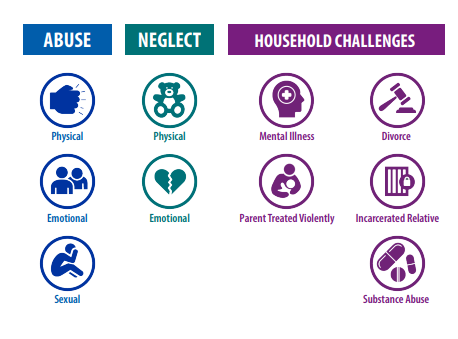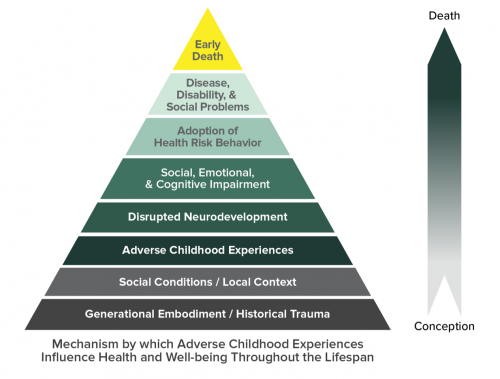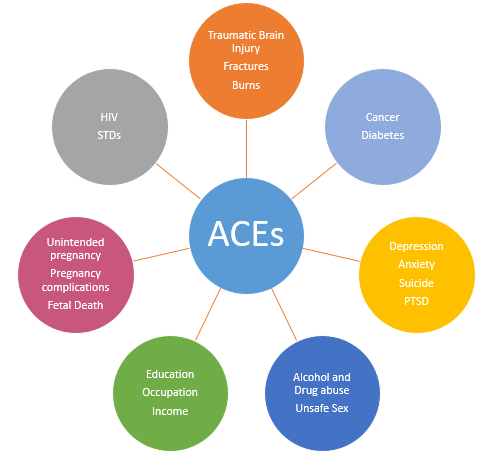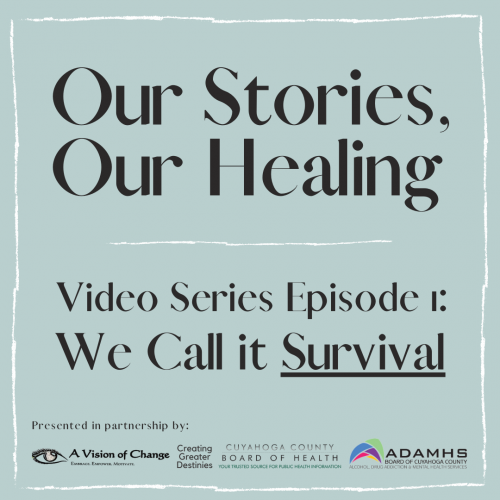What are Adverse Childhood Experiences?
Adverse Childhood Experiences (ACEs) are preventable and potentially traumatic experiences that occur during childhood and may have a tremendous impact on future lifelong health and opportunity and puts us at risk for violence, chronic health problems, mental illness, and substance abuse in adulthood.
Examples of ACEs include experiencing violence, abuse or neglect, growing up in a household with parental conflict, and substance use or mental health problems in the home. As the number of adverse childhood experiences increases, so does the risk for negative health outcomes and risk behaviors.
Types of ACEs
 Source: Centers for Disease Control and Prevention/Adverse Childhood Experiences Prevention Strategy Plan
Source: Centers for Disease Control and Prevention/Adverse Childhood Experiences Prevention Strategy Plan
Source: Centers for Disease Control and Prevention/Violence Prevention
Impact of ACEs on some health outcomes
Click here to find local and state ACEs-related data
The Cuyahoga County Board of Health, A Vision of Change, Creating Greater Destinies and the ADAMHS Board have teamed up to launch this video series titled Our Stories, Our Healing as part of an Adverse Childhood Experiences (ACEs) grant from the Centers for Disease Control and Prevention (CDC). This series aims to raise awareness through storytelling by community members who have overcome traumas and found healing. Mental health, substance use disorders and domestic violence are a few of the topics that will be explored throughout the series.
What can be done?
There are protective factors that can decrease the possibility of experiencing ACEs, such as creating safe and stable relationships and environments for all children.
The presence of ACEs does not mean that a child will experience poor outcomes. A child’s positive experiences and protective factors will help protect our kids as they grow.
Preventing Adverse Childhood Experiences (ACEs): Leveraging the Best Available Evidence
This is a resource to help states and communities leverage the best available evidence to prevent ACEs from happening in the first place as well as lessen harms when ACEs do occur. It features six strategies drawn from the CDC Technical Packages to Prevent Violence.
Strengthen economic supports for families
Promote social norms that protect against violence and adversity
Ensure a strong start for children
Enhance skills to help parents and youths handle stress, manage emotions, and tackle everyday challenges
Connect youths to caring adults and activities
Intervene to lessen immediate and long-term harms







